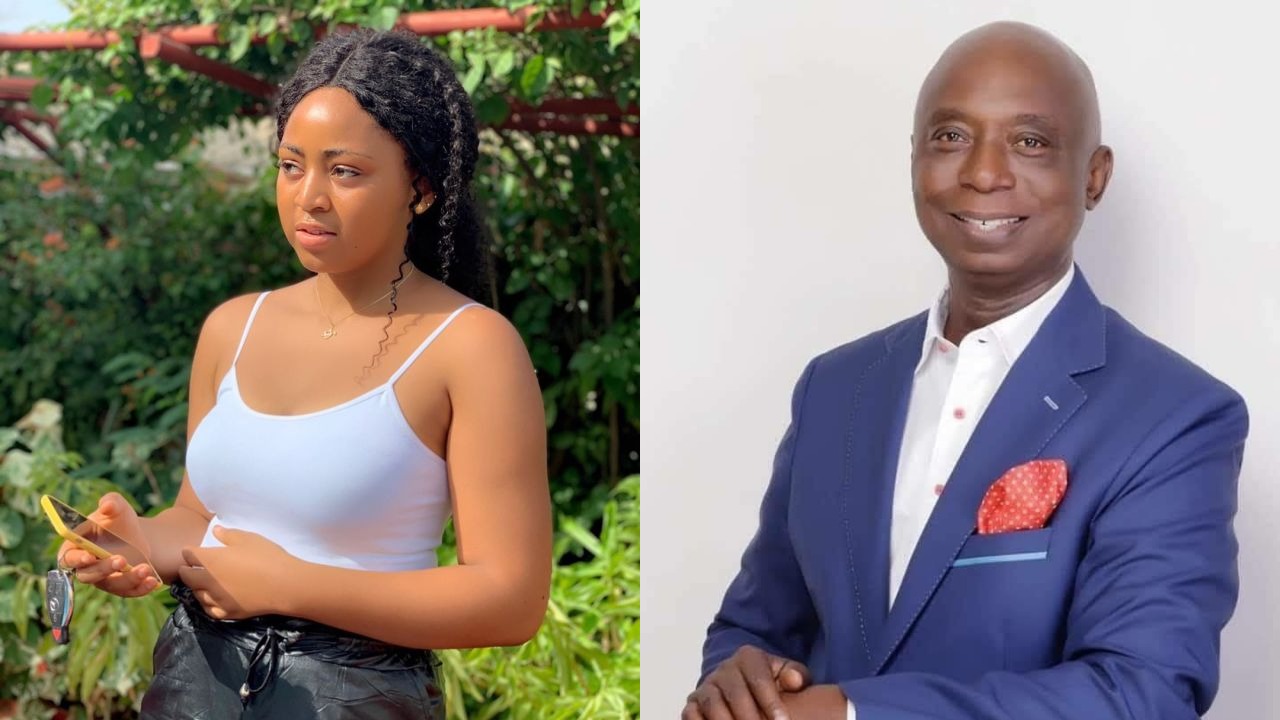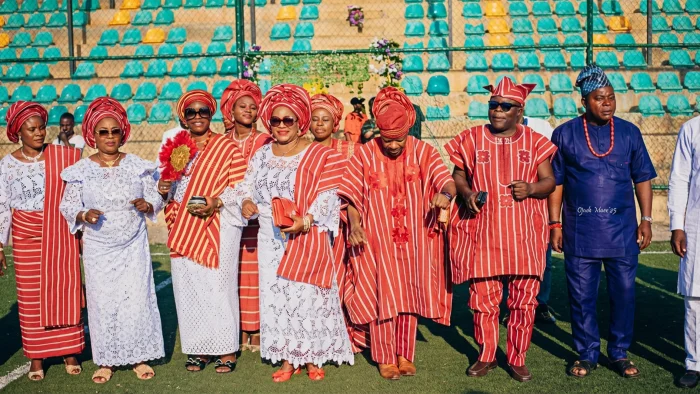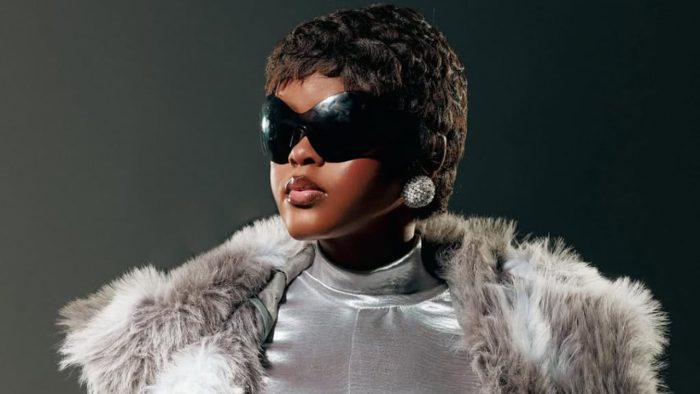The third sentence in her Twitter bio is direct and unambiguous – You would either love me or hate me and either one is perfectly okay!
Often maligned for her stance on national issues in Nigeria by pro-government voices, she is not a run-off-the-mill activist. Her penchant for naming names has earned her truckloads of enemies, and perhaps, admirers.
Born in Northern Nigeria, a society where speaking up as a female was unheard of, 10-year-old Yesufu was already standing up against injustice.
“Even though my parents or adults were angry at me for speaking up especially when it does not favour them; when they had that need to have someone that was unbiased to look at issues, they would call me.”
“I have the gift to look at issues from both sides even when I am involved and when I am not. I am able to tell people, “okay look at it like this”. My mother would always say, ‘nobody wins in your court’, but in that same court when they want the issues to be told plainly, they would come.”
Perhaps, her ability to speak up might be linked to her status as the firstborn in her family and the fact that she saw her father lose everything that he has.
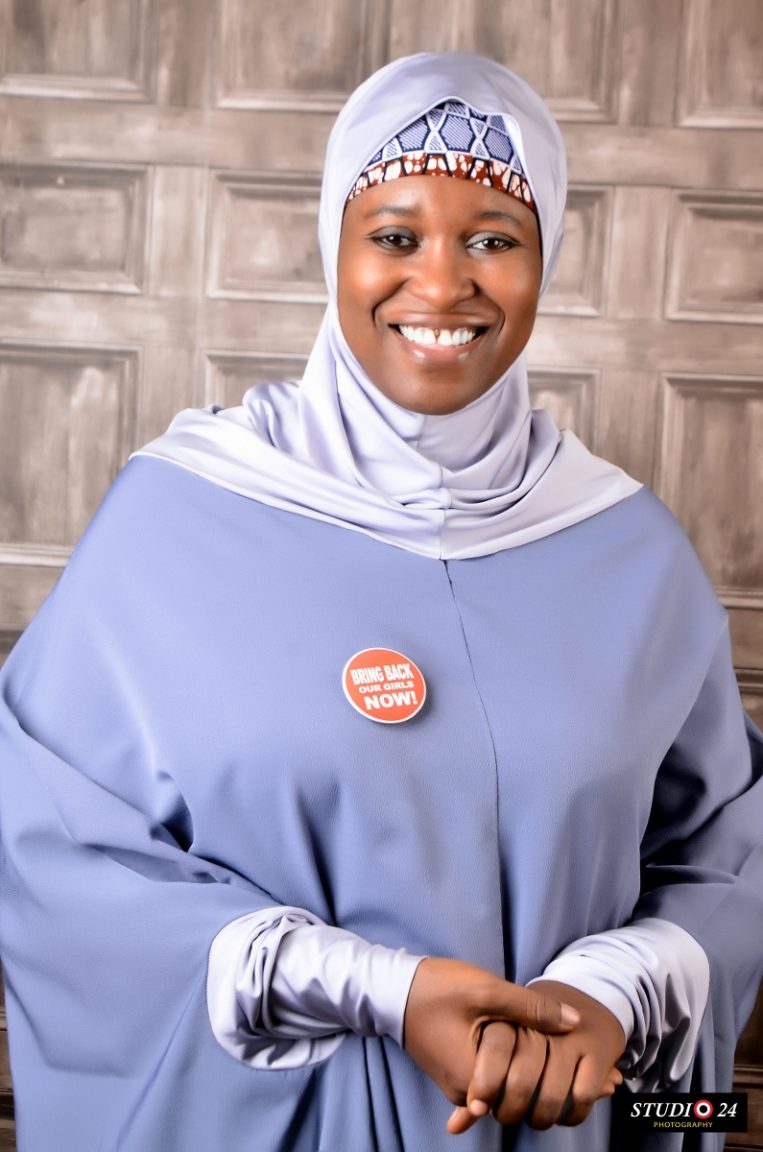
That experience would change her life and thinking pattern forever. Rather than dwell on the losses and what could have been, the young Yesufu learned that life could change in an instant and because of that, she needed to make an impact urgently.
“There was a time in my life in secondary school that I would go to school without breakfast and come back, not expecting lunch.”
Another attribute she says helped her during this period was her insatiable hunger for books. Reading made her realise “there was a world beyond the ghetto that I was growing up in…and I wanted that life… and thank God in 2014, my mum would call and say, thank you for dreaming for everybody.”
Yet, as it is customary in a patriarchal society such as Nigeria, the issue of being a girl sprung up occasionally.
“You were seen as vulnerable because you were a girl. During our time, you were not even supposed to have a voice and even though it got me into a lot of trouble then, I was good with that [speaking up].”
As Aisha grew, her knowledge and refusal to back down grew even if it meant an argument with her father. “Sometimes, I would argue with my father for literally 12 hours and my mother would use her eyes to tell me to stop.”
Like Aisha, her father was a tough breed in school and would challenge authorities which would sometimes land him in trouble. “My mum would say, you are complaining and she is just like you,” she says chuckling.
Yesufu’s stubborn trait sprung up again in 1991 when she wanted to enrol in the NDA (Nigerian Defence Academy) and was rejected because she was a woman. “The most painful part is that I was told that women don’t attend. I was angry and was ranting.”
At the three universities (Uthman Dan Fodio, Ahmadu Bello and Bayero) she attended, she recalls that her friends would avoid moving with her at the administrative block for fear of getting rusticated. “I knew those times that they could drive me away from school but I always thought, ‘on the issue, I am going to follow it through’. ”
[ad]
Yesufu quickly learned that if she was going to continue speaking up, she had to ensure that her integrity was maintained. In 2000, during the compulsory National Youth Service Corps (NYSC), she would fight to a standstill to return the extra stipend that was paid into her account. “The NYSC officials were asking, ‘what type of thing is this?’ and frustrated me in every way.” “Today I ask myself if I had kept that money, what moral justification would I have to speak against injustice?”
Like the stars aligning in her favour, that prepared her for what she has become known for- activism.
On Feminism and Marriage
While Yesufu’s family had adjusted to her stubborn traits, her mother was concerned about the marital future of her daughter and if she would be able to stay married.
Coupled with the fact that she had no female friends when she was 11 because they were all married off or dead [during childbirth] and her getting married at 24, a time considered as late by some conservatives in Northern Nigeria.
Yet, Yesufu says that her husband of 21 years is her number one fan.
With his support, she can face the world, she adds with a hint of pride. His main priority, she says, is to ensure that she is happy doing what she loves to do.
Beyond this, Yesufu admits that she is “lazy” when it comes to house chores, a trait, that did not sit well with her parents when she was growing up.
“I am very, very lazy. My parents used to say, ‘Is everything book?’ Even when my husband proposed, I told him, I am lazy and I hate housework, I hate cooking and he was ready to go with it.”
“I set systems in place to work for me. I hire and pay people to make me jobless. By the grace of God, I will never work for anybody so I have time on my hands.”
That is not even the rather surprisingly part. She says that she was the one who approached her husband. “I first laid eyes on my husband on the 13th of December 1996 and I fell over heels in love with him and went after him.” 16 months later, they tied the knots.
[ad]
She tells me that at the early stages of their relationship, her husband spoke to her on the need to stay financially independent. “He was an auditor and was always travelling. One day he told me, ‘If anything ever happens to me, I will want you to always take care of yourself and kids if we have them’.”
“Being brought up to expect that a man that will take of you, it was my husband that taught me to be financially independent so that I can have control over my voice and not be dependent.”
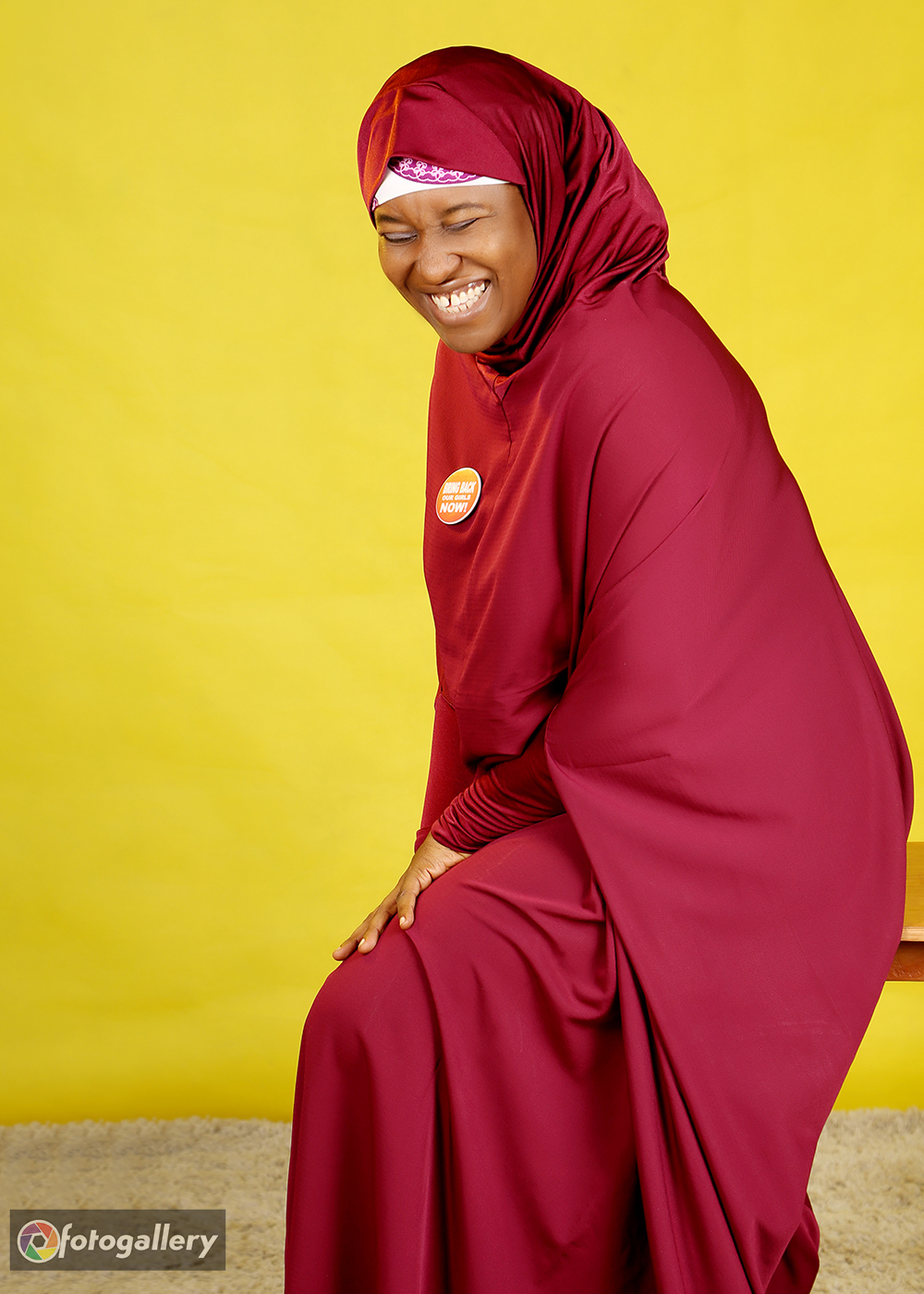
Interestingly, Yesufu says that if she did not take up activism, she would have been a singer and dancer. Doing what she loves to do includes living life to the fullest, travelling and acting goofy, she tells me laughing. She also prides herself as “very romantic.” “I have been married for 21 years and every day is a romantic fantasy that I am fulfilling.”
Good thing her last child is going to the university so there is more time to have fun with her husband, she says.
BBOG Warrior
It is clear that her activism has made a huge impression on Nigerians. Bring Back Our Girls (BBOG), the longest-standing protest in Nigeria, attracted the attention of former first lady of the United States, Michell Obama; Hillary Clinton; had its hashtag #BringBackOurGirls tweeted more than 2 million times; inspired a spark of protests in US, UK, South Africa, Jamaica and Switzerland; represented in Marvel’s Black Panther; spoken on by Wyclef John, Chris Brown, and disseminated by the international and national press.
Since the BBOG, Nigerians have exhibited boldness to speak up against the government, go on protests and have been vocal about their grievances.
This does not mean that she is not oblivious of the fear expressed by people in society.
“Of course, there is always that fear that if you speak out, you will be killed… but death is death and it would come when it would come.”
“The worst thing anyone can do to me is to kill me. I’m going to die anyway, so it’s really not the worst thing because It is going to happen anyway. It’s another kind of death too if I am not able to express myself.”
In respect to this, she says that every time she goes to protest; she says her last prayers. “I say maybe I am not going to leave this place, but whatever it is, that is what it will be.”
As the number of Nigerians voicing out against government stays on the rise, Yesufu is happy with the change of status quo.
“Growing up, the average Nigerian was taught that you should not question elders. They grew up with how not to question authority and it went on through school. Now that they have become adults, they have used government to replace parents so they don’t question authority.”
“Fortunately, we are seeing more movements like BBOG inspire them to stay on course. They are realising that the office of the citizen is actually the highest office in the land. They are realizing that we don’t need permission from the police to protest but protection.”
“Whatever I am doing today, I am fighting for that little girl that I was that yearned for help, that begged to be helped with a textbook so that I can read and pass my exams. If I ever give up that fight, I will be giving up on myself.”
Giving credence to social media and Oby Ezekwesili, a one-time Guardian Life cover subject, she says that Ezekwesili contributed massively to Nigerians embracing this truth.
Religious Faux
In recognition of the International Day Commemorating the Victims of Acts of Violence Based on Religion or Belief, she says strongly that the case of Leah Sharibu is an atrocity against humanity. She opines that a girl-child in an education quest should not have her future truncated because of religion.
“I always tell people that the case of the Chibok girls and Leah Sharibu is a world case because when you say to the girl-child that she should dare to dream and shatter glass ceilings and she looks at the fact that 279 of the sisters did that and were abducted, and 112 girls are still in captivity and she sees that the abduction was because they dared to dream and refused to renounce her (Sharibu) religion, then the world needs to consider what actions the girl-child will be looking at.”
[ad]
Then again, in a country where religion is seen as a primary factor in one’s life, she says matter-of-factly that a major problem with Nigerians is their unacceptance of religion as a personal journey. “As a people, we are very religious but we are godless. We are more interested in eye-service. The same person who goes to church or mosque every day will not find it wrong in committing fraud or engaging in corruption.”
Faulting the pilgrimage and the forex trading that Nigerian governments engage in, she opines that undue relevance is given to things that should remain personal.
“The Nigerian system is wired in such a way that religion is given so much relevance when it comes to state matters. Why? They are subsidising for pilgrimage but not education which is more important. Of course, the politicians have found a way to use religion to gain things out of sentiment.”
“Don’t tell me what religion you are, show me. Let me see empathy in you. Most people are ready to fight for religion but are not ready to fight for humanity.. when we get to heaven, everyone will see who went where,” she adds.
A luta Continua
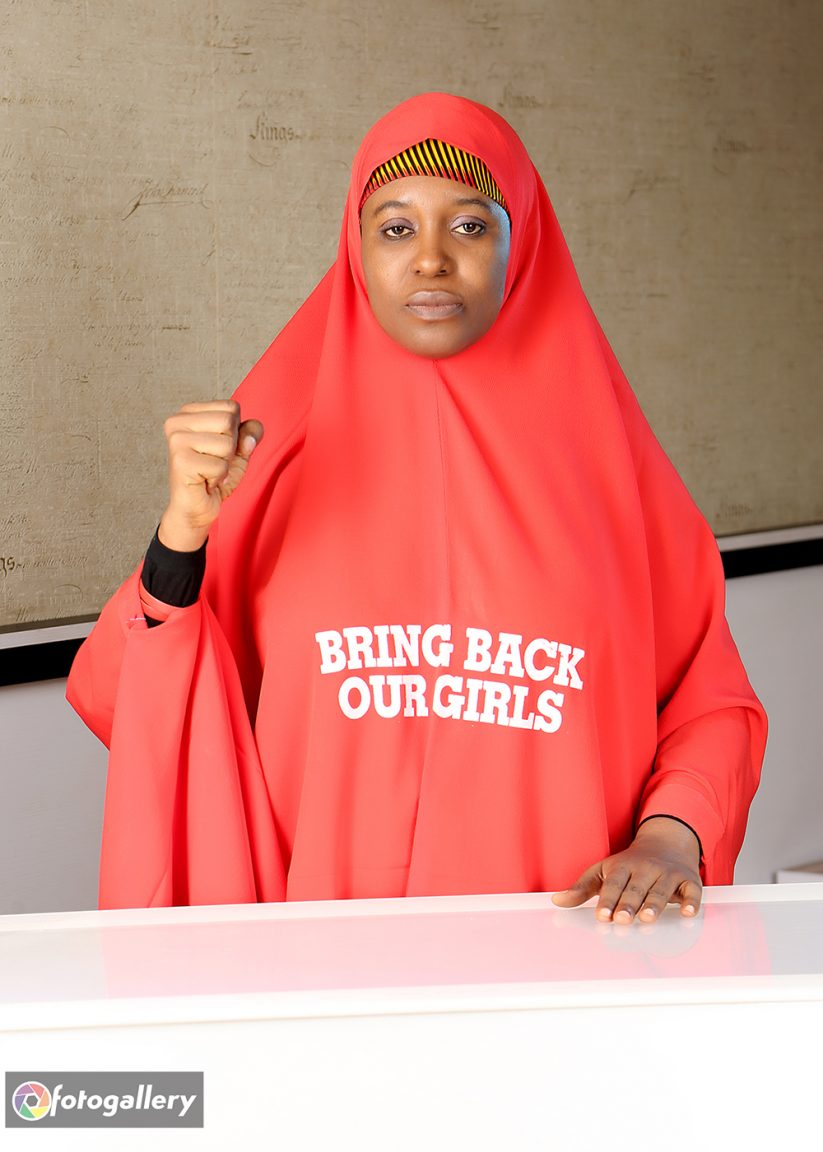
In life’s stories such as this, it is commonplace to hear tales of struggles, yet Yesufu who describes herself as a survivor calmly tells me that throwing in the towel is not something she can identify with. Linking it back to her stubbornness, she says that every attempt to take up an issue translates to her knowing the end thereof even if it means losing an opportunity.
“Is the opportunity worth it? Maybe it is because I have no attachment to anything, even life itself.”
“What I am never ready to lose is my worth, dignity, integrity, and character. If I lose everything and have to sell pure water, I will carry it on my head with dignity, and character intact.”
“Another thing is, I hold myself to high standards.” “No politician or anyone in any parastatal would tell you that Aisha Yesufu came to my office to seek for an appointment or a contract.”
“I want a level playing ground for everybody where the woman who sells groundnuts or is frying akara or the motorcyclists that are working hard to send their children to school should be able to get jobs based on their capacity and ability and not on who they know.”
If she is bothered about the impression of people about her since then, she says she is not one to consider that as important and is unapologetic about her stance.
“When people say ‘don’t you know you are a woman?’, I tell them, I don’t know.”
“If you check my twitter, you’d see I don’t really do labels. I don’t see myself as male or female, activist or anything, I am me.”
[ad unit=2]



